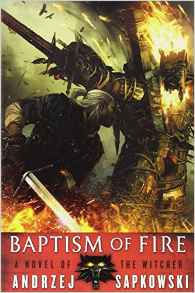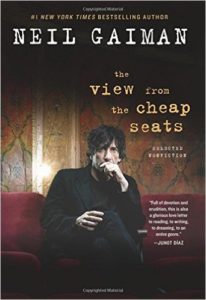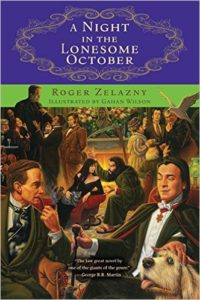I requested this book from NetGalley because the premise sounded hella intriguing: in 2054, the Virtual Gaming League hosts VR gladiatorial combat tournaments, with participants feeling all the pain of their avatars, despite the injuries and deaths staying virtual. The first female team captain in the history of the combats, Kali Ling, challenges the structure that hides deep dark, secrets.
Except they’re not really secrets. And they’re not really that interesting.
So here’s the deal, you get that Holly Jennings knows and loves her video games. And she tackles the culture of celebrity and addiction and the manipulation of the young and impressionable by cold-eyed corporations for profit — all meaty stuff. And her near-future setting offers an interesting sci-fi slant.
But oh my God, so little of it makes sense.
Even if one accepts the premise of all these gamers accepting real pain for virtual injuries and deaths (for what reason? This masochism is never explained,) the sheer lack of professionalism in any of it makes zero sense given how much corporate money is purportedly on the line. I mean, I prepped more for amateur CCG matches than these kids do for pro video games. The format in these tournaments is essentially capture the flag, and when 40% of the way into the book, Kali has a brainwave and starts thinking of studying the teams they’re facing… for real? This was not your strategy since Day One?! I went into this assuming that the reason Team Defiance, Kali’s team, got slaughtered so brutally by InvictUS in the opening pages was because they had a spy in their ranks, which would have been an interesting plot point. But no, the real reason is because InvictUS was professional and prepared. If these were amateur games, then I would totally buy Defiance’s absurd lack of foresight, but we’re repeatedly told these are pro tournaments and these kids have the experience of years.
Another thing I side-eyed: the lack of coaching staff. I get that it’s a new-ish sport, but given that these guys have dedicated trainers and simulation programmers, I’m supposed to believe they don’t have anyone to outline tactics and strategies?! No way does a corporate-sponsored team not have anything like the coaching prevalent in other pro sports, especially if we’re supposed to believe that the VGL is one of the biggest sports in America. And don’t get me started on the absurd dismissal of pro athletes as being incapable of adapting to these games the way “real” gamers would. Tons of “real” athletes are hardcore into video games, too.
None of the competitive aspects of the narrative make a lick of sense to anyone with any experience of organized sports or tournament game play, or to anyone who understands business. No way would corporate sponsors exhort their athletes to party and make the pages of the tabloids instead of eating right and getting enough sleep. Performance enhancers = believable, party drugs = stfu. I totally believe the mandated outings for publicity (I was a professional stage actress, I know the drill,) but corporate gets really, really angry when partying gets in the way of show time, or in this case, game time. Completely unbelievable.
I also had a hard time believing that Team Defiance was all 20 and 21 year-olds. They acted like 16 year-olds, especially Kali. And don’t get me started on her awful romance with Rooke. He’s your standard hot, alpha male jerk bag, but with a religious twist! See, he thinks it’s okay to press discussion of a person’s religion when specifically asked by that person not to do so. And not only does he magically manage to put her in touch with her religion despite her reluctance, her religion then gives her a competitive edge, which totally made me want to barf. I don’t mind when fiction incorporates religion into the narrative (I’m actually in the middle of a Louise Penny jag for work, with books that explore religion in a deft and respectful manner,) but I do mind when the main character is dragged to salvation in a triumphalist fashion, no matter what faith tradition it’s sourced from. This kind of writing is smug and, worse, boring. Also, I’m convinced that Rooke is a not-so-secret Asian fetishist. The entire discussion of racism in the book was excruciating, especially to me as an Asian person.
Gosh, the bigger ideas in the book have so much potential, but none of the details made sense. I’m not sure how old Ms Jennings is, but this read like it was written by a teenager with little experience of the complexities of adulthood. I requested this from Netgalley in hopes of being allowed early access to the sequel, but I’m definitely not requesting that now. I’m hoping Ms Jennings channels her talents into areas she has more experience with, as the classic video game scenes and the discussions of celebrity culture and survivor’s guilt were all compelling, but the rest of it was awful. Someone let me know if she writes something good in future. She’s definitely got potential, but Arena was not a worthwhile display of her talents.




